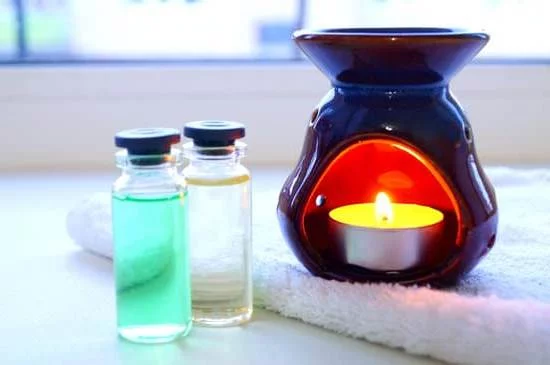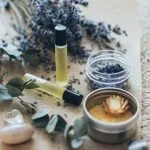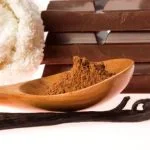Are you looking to improve your sleep quality and overall well-being? One effective way to enhance the effectiveness of your CPAP machine is by incorporating aromatherapy into your nightly routine. In this article, we will explore how to use aromatherapy with a CPAP machine to maximize the benefits for a restful night’s sleep.
Aromatherapy has been used for centuries as a natural remedy for various ailments, including insomnia and sleep disturbances. By understanding the benefits of using essential oils with a CPAP machine, individuals can experience improved relaxation, reduced stress, and better sleep quality. This introductory section will provide insight into the potential advantages of combining aromatherapy with CPAP therapy for enhanced well-being.
We will delve into the world of aromatherapy, defining what it is and exploring different essential oils that are best suited for promoting relaxation and facilitating a good night’s sleep. Additionally, we will discuss how to choose the right essential oils based on individual needs and preferences. With a focus on improving sleep quality and overall health, this article aims to offer practical insights into utilizing aromatherapy with a CPAP machine.
Understanding Aromatherapy
Aromatherapy is a holistic healing treatment that uses natural plant extracts, also known as essential oils, to promote physical, emotional, and mental well-being. These essential oils are highly concentrated liquids that are extracted from leaves, flowers, stems, roots, or other parts of a plant. They are used in aromatherapy to improve sleep quality, reduce stress and anxiety, and create a soothing and relaxing environment.
What Are Essential Oils?
Essential oils are volatile compounds that contain the natural aroma and properties of the plant from which they are derived. Each essential oil has its own unique therapeutic benefits and can be used alone or in combination with other oils for various purposes. Some popular essential oils used for sleep and relaxation include lavender, chamomile, bergamot, ylang-ylang, and cedarwood.
Benefits of Aromatherapy for Sleep
Aromatherapy has been shown to have a positive impact on sleep quality by promoting relaxation and reducing insomnia symptoms. The inhalation of certain essential oils can help calm the mind and body, leading to improved sleep patterns. Additionally, aromatherapy can also help alleviate symptoms related to sleep disorders such as obstructive sleep apnea (OSA) when used in conjunction with CPAP therapy.
Using Aromatherapy With a CPAP Machine
When using aromatherapy with a CPAP machine, it’s important to ensure that the essential oils do not interfere with the functionality of the device or pose any health risks. By following specific guidelines for safe use and proper setup, individuals can effectively harness the benefits of aromatherapy while using their CPAP machine for sleep apnea treatment.
In the next section, we will delve into how to select the right essential oils for sleep and discuss the best practices for incorporating aromatherapy into CPAP therapy for optimal results.
Choosing the Right Essential Oils
Aromatherapy is a natural and effective way to improve sleep quality and overall well-being when used in conjunction with a CPAP machine. When it comes to selecting the right essential oils for sleep, there are several options to consider, each offering unique benefits and aromatic properties. Here are some of the best essential oils for sleep and relaxation:
- Lavender: Known for its calming and soothing properties, lavender essential oil can promote relaxation and help alleviate insomnia.
- Chamomile: With its gentle, floral scent, chamomile essential oil is ideal for reducing anxiety and inducing a sense of calm before bedtime.
- Sandalwood: This woody and earthy-scented essential oil can aid in promoting deep sleep and easing restlessness.
- Ylang Ylang: Often used in aromatherapy for its sedative effects, ylang ylang essential oil can help manage stress and improve sleep quality.
When choosing the best essential oils for individual needs, it’s important to consider personal preferences and any specific concerns related to sleep. Some people may prefer a more subtle or invigorating scent, while others may have sensitivities to certain aromas. It’s also helpful to experiment with different essential oils to find the ones that work best for promoting relaxation and improving sleep patterns.
Incorporating these essential oils into your CPAP therapy can enhance the overall sleep experience by creating a calming and soothing environment. By adding a few drops of your chosen essential oil onto a cotton ball or pad near your CPAP machine’s air filter, you can benefit from the therapeutic effects of aromatherapy while enjoying the consistent airflow provided by the device.
It’s important to ensure that the selected essential oil does not interfere with the functionality of the CPAP machine or cause any adverse reactions when inhaled during use.
As you explore how to use aromatherapy with a CPAP machine, keep in mind that individual responses to different essential oils may vary. It’s advisable to start with small amounts of each oil to gauge their effects on your sleep quality before incorporating them into your regular nighttime routine.
Additionally, consulting with a healthcare professional or aromatherapist can provide personalized recommendations based on specific sleep concerns or health conditions. By choosing the right essential oils for sleep and understanding how they complement CPAP therapy, you can create a relaxing atmosphere that promotes better rest and improved overall well-being.
How Aromatherapy Works With CPAP
Aromatherapy can be a wonderful addition to the CPAP experience, as it can help promote relaxation, reduce stress, and improve sleep quality. When used in conjunction with a CPAP machine, aromatherapy can enhance the overall sleep experience by creating a soothing and calming environment. The use of essential oils in aromatherapy has been shown to have numerous health benefits, including improving sleep and addressing sleep-related disorders such as snoring and sleep apnea.
Understanding how aromatherapy works with a CPAP machine is essential for maximizing its benefits. Aromatherapy involves using natural plant extracts, known as essential oils, to promote physical and psychological well-being. When these essential oils are diffused into the air through a CPAP machine, they can be inhaled during sleep, providing therapeutic effects that contribute to better rest.
To use aromatherapy with a CPAP machine, it is important to choose high-quality essential oils that are safe for inhalation and compatible with the materials of the CPAP equipment. Some popular essential oils for promoting relaxation and better sleep include lavender, chamomile, bergamot, and cedarwood. Before using any essential oil with a CPAP machine, it’s crucial to consult with a healthcare professional or an aromatherapist to ensure that it is safe and appropriate for individual needs.
| Benefits of Using Aromatherapy With CPAP | How Aromatherapy Works With CPAP |
|---|---|
| Promotes relaxation | Aromatherapy involves using natural plant extracts |
| Reduces stress | Therapeutic effects of essential oils contribute to better rest |
| Improves sleep quality | Diffused into the air through a CPAP machine |
| Addresse sleep-related disorders such as snoring and sleep apnea. | Inhaled during sleep |
When using aromatherapy with a CPAP machine, it’s important to follow specific guidelines for safe use. For instance, only distilled water should be used in the humidifier chamber when incorporating essential oils into the CPAP therapy. Additionally,it’s important not to add more than one or two drops of essential oil at once so as not to clog the equipment or overwhelm your senses while you’re trying to sleep.
Overall, when used properly and safely, aromatherapy can greatly enhance the effectiveness of CPAP therapy for addressing various sleeping issues including snoring or other forms of obstructive breathing patterns associated with Sleep Apnea.
Incorporating aromatherapy into your nightly routine alongside your Cpap therapy may alleviate some common problems associated with Cpap usage such as dryness in your nasal passages related to air pressure changes this also contributes positively on an overall design on behavior related factors influencing sleeping problems related mainly because of apnea( Sleep Apnea).
Aromatheraphy promotes relaxation by producing less obstructive airflow patterns that get augmented under normal light conditions.
Therefore,this combination holds potential benefits regarding percieved efficacy.
Before starting out its also very important always checking its high compatibility following medical guidance too.
Setting Up Aromatherapy With CPAP
Aromatherapy can be a great addition to your CPAP routine, enhancing the overall sleep experience and promoting relaxation. By incorporating essential oils with your CPAP machine, you can create a calming and soothing environment that can improve sleep quality and overall well-being. In this section, we will provide step-by-step instructions on how to properly set up aromatherapy with your CPAP machine for safe and effective use.
Before using aromatherapy with your CPAP machine, it is important to choose the right essential oils that are safe for inhalation and conducive to relaxation. Some of the best essential oils for sleep include lavender, chamomile, and cedarwood. These oils are known for their calming properties and can help promote a restful night’s sleep. When selecting essential oils, it’s important to consider individual preferences and any potential allergies or sensitivities.
Once you have chosen the right essential oil for your needs, you can start incorporating aromatherapy into your CPAP routine. One method is to use a diffuser specifically designed for CPAP machines. These diffusers are attached directly to the CPAP tubing and deliver the aroma of the essential oil as air flows through the machine.
Another option is to apply a few drops of the chosen essential oil onto a cotton pad or cloth near the air intake of your CPAP machine. This allows the aroma to mix with the airflow from the machine, providing a gentle scent throughout the night.
When setting up aromatherapy with your CPAP machine, it’s important to follow manufacturer guidelines and recommendations for safe use. Be sure to clean and maintain your equipment regularly to ensure that there is no buildup of residue from essential oils that could affect the performance of your CPAP machine. Additionally, always consult with a healthcare professional before using aromatherapy with your CPAP machine, especially if you have any underlying health conditions or concerns.
| Essential Oils | Sleep Benefits |
|---|---|
| Lavender | Promotes relaxation and reduces anxiety |
| Chamomile | Calms nerves and aids in falling asleep |
| Cedarwood | Induces sedative effects and supports deep sleep |
Tips for Using Aromatherapy
Understanding the Role of Aromatherapy in Sleep Quality
Aromatherapy has been used for centuries as a natural remedy to promote relaxation, reduce stress, and improve sleep quality. When used in conjunction with a CPAP machine, the benefits of aromatherapy can be further enhanced to provide a more holistic approach to respiratory therapy. By understanding how different essential oils can impact sleep patterns and overall well-being, individuals can effectively incorporate aromatherapy into their CPAP routine to achieve a more restful and rejuvenating sleep experience.
Choosing the Right Essential Oils for CPAP Aromatherapy
When utilizing aromatherapy with a CPAP machine, it is essential to select the right essential oils that are safe for inhalation and conducive to promoting sleep. Lavender, chamomile, and valerian root are popular choices known for their calming and sedative properties. Individuals should consider their personal preferences and any potential allergies or sensitivities when choosing essential oils for use with their CPAP machine. Additionally, it is important to use high-quality, pure essential oils to avoid any potential respiratory irritation.
Incorporating Aromatherapy Into Your CPAP Routine
To maximize the benefits of aromatherapy with a CPAP machine, individuals should create a consistent routine by incorporating essential oils into their nightly sleep regimen. This may involve using an aromatherapy diffuser specifically designed for use with a CPAP machine or adding a few drops of diluted essential oil onto a cotton ball placed near the CPAP air intake. It is crucial to follow manufacturer guidelines and recommendations when using aromatherapy with a CPAP machine to ensure safety and effectiveness.
By following these practical tips and tricks for using aromatherapy with a CPAP machine, individuals can enhance their overall sleep experience and enjoy the therapeutic benefits of essential oils while receiving respiratory therapy. Understanding the role of aromatherapy in promoting better sleep quality and selecting the right essential oils are key elements in creating an effective aromatherapy routine that complements the use of a CPAP machine.
Precautions and Considerations
Aromatherapy is a popular complementary therapy for promoting relaxation, reducing stress, and improving sleep quality. When used in conjunction with a CPAP machine, it can further enhance the overall sleep experience. However, it is important to be mindful of potential risks and considerations when incorporating aromatherapy with a CPAP machine. Here are some important precautions to keep in mind when using essential oils with your CPAP machine:
- Consult with Your Healthcare Provider: Before starting aromatherapy with your CPAP machine, it is crucial to consult with your healthcare provider, especially if you have any pre-existing respiratory conditions or sensitivities.
- Selecting the Right Essential Oils: Some individuals may have allergies or sensitivities to certain essential oils. It’s important to carefully research and select oils that are safe for use with your CPAP machine.
- Dilution and Diffusion: Essential oils should always be properly diluted before using them with a CPAP machine. Additionally, using a diffuser that is specifically designed for use with CPAP machines can help ensure safe and effective delivery of the aromatherapy.
In addition to these precautions, there are also considerations to keep in mind when using aromatherapy with a CPAP machine:
- Monitoring for Adverse Reactions: It’s important to monitor yourself for any adverse reactions when using essential oils with your CPAP machine. If you experience any negative symptoms such as irritation or difficulty breathing, discontinue use immediately and seek medical attention.
- Cleaning and Maintenance: Regularly clean and maintain both your CPAP machine and the aromatherapy accessories to prevent the buildup of bacteria or mold. This will help reduce the risk of respiratory issues associated with contaminated equipment.
- Potential Interactions: Some essential oils may interact with medications or exacerbate certain health conditions. Be sure to discuss any potential interactions with your healthcare provider before incorporating aromatherapy into your CPAP routine.
By being aware of these precautions and considerations, individuals can safely enjoy the benefits of using aromatherapy with their CPAP machines while minimizing potential risks. Always prioritize safety and consult medical professionals if there are any concerns about integrating aromatherapy into your sleep therapy routine.
Conclusion
In conclusion, incorporating aromatherapy with a CPAP machine can significantly enhance the sleep experience and improve overall well-being. By understanding the benefits of aromatherapy and selecting the right essential oils for sleep and relaxation, individuals can effectively use this technique to complement their CPAP therapy. Aromatherapy works by utilizing the therapeutic properties of essential oils to promote relaxation and improved sleep quality, making it an excellent addition to CPAP therapy for those seeking a holistic approach to better health.
Setting up aromatherapy with a CPAP machine is relatively simple, and following step-by-step instructions can ensure safe and effective use. By employing practical tips and tricks, individuals can maximize the benefits of aromatherapy with their CPAP therapy and create a soothing sleep environment.
However, it is important to consider potential risks such as allergies and sensitivities when using essential oils with a CPAP machine, so taking precautions and being mindful of individual needs is crucial for a positive experience.
Overall, integrating aromatherapy with a CPAP machine can be an impactful way to improve sleep quality and enhance overall health. By harnessing the power of natural essential oils, individuals can create a calming and relaxing atmosphere that complements their CPAP therapy, leading to better rest and improved well-being. With proper understanding, careful selection of essential oils, and mindful consideration of precautions, using aromatherapy with a CPAP machine can be a valuable addition to one’s sleep routine.
Frequently Asked Questions
Can You Use Aromatherapy With CPAP?
Yes, you can use aromatherapy with CPAP. However, it is important to use essential oils specifically designed for CPAP machines to avoid damaging the equipment or causing any adverse reactions during therapy.
What Is the Scented Air for CPAP?
The scented air for CPAP typically comes from using specially formulated essential oils or aroma blends that are safe to use with CPAP machines. These scents are often chosen based on their calming or invigorating properties to enhance the overall sleeping experience.
Can You Put Liquid Vicks in a CPAP?
It is not recommended to put liquid Vicks directly into a CPAP machine. The petroleum-based ingredients in Vicks can damage the CPAP equipment and pose a risk to your respiratory health if inhaled during therapy. It’s best to use CPAP-specific aromatherapy products instead.

Are you looking for a natural way to improve your health and wellbeing?
If so, aromatherapy may be the answer for you.





